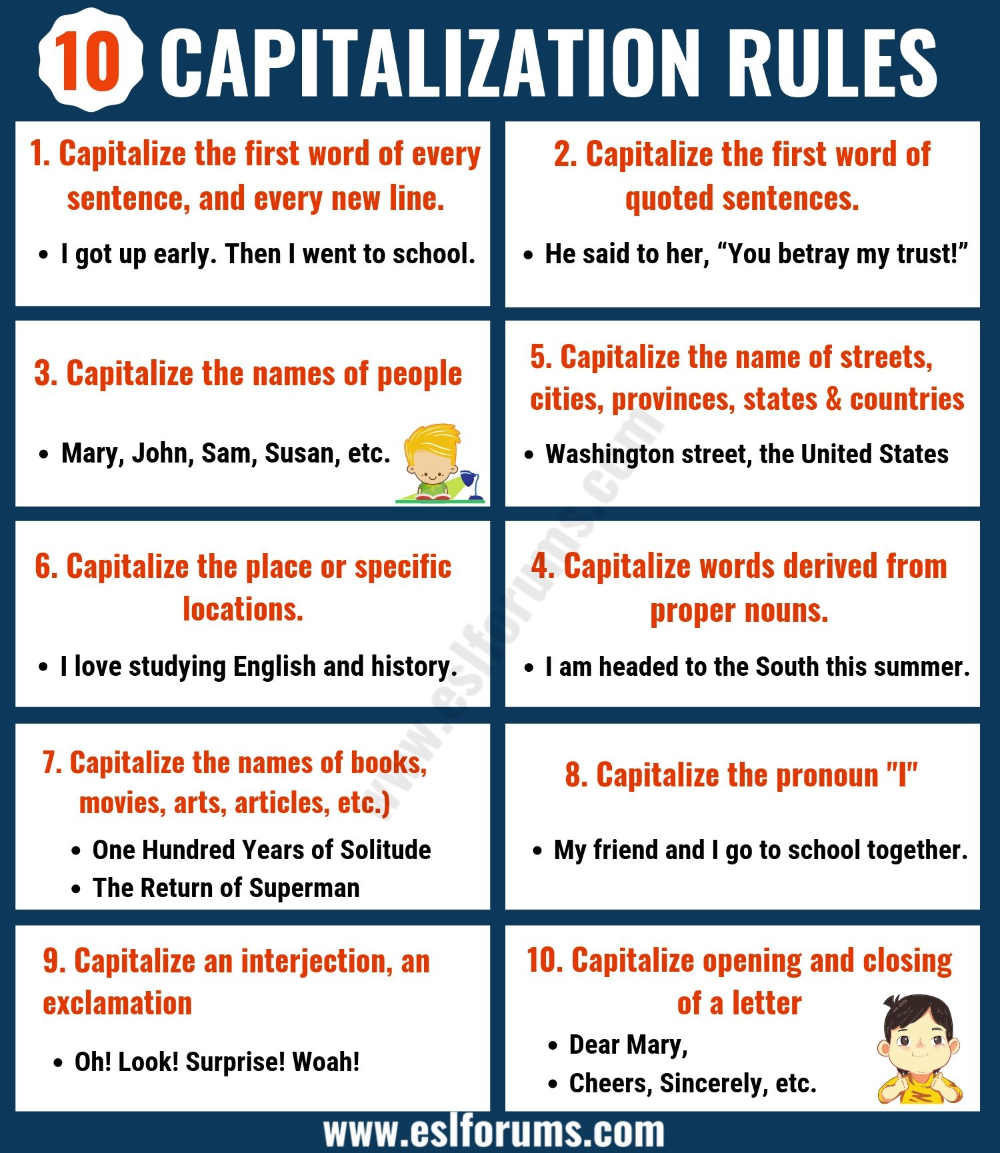Knowing when and when not to capitalize is an important part of writing correct English. Most students quickly learn that you always capitalize the first letter of a new sentence, but what are the other rules?

Although mistakes with capitalization do not generally have a big affect on the readability of your written English, it is important to get it right when writing formally for work or study purposes. Fortunately, the most common rules above are quite clear and straightforward to learn. Below are a few more capitalization rules you should be aware of.
Capitalize family relationships when used as proper nouns.
Capitalize “Uncle Brian,” and “Grandma Betty”. Do not use capitals when referring to a person’s name. For example, “We visit my uncle and grandma every Thanksgiving.”
Capitalize directions that are names, but not compass directions.
We would capitalize “The Pacific Northwest” and “Central Florida,” but not “I took a train east.”
Capitalize the days of the week, the months of the year, and holidays, but not the seasons used generally.
However, seasons are capitalized when used as a proper title. For example:
• “I will go on vacation in the summer.”
• “I am attending Summer School this year.”
• “I bought my wife a dozen roses for Valentine’s Day.”
Capitalize periods and events, but not century numbers.
We would write “Bronze Age” and “Great Depression,” in capitals, but not the “fifth century.”
Capitalize trademarks.
For example: “Toyota,” “Pepsi,” and “Samsung.”
Are you interested in teaching English as a foreign language?
Get your TEFL or TESOL certificate with ITTT.
Register now & get certified to teach english abroad!


